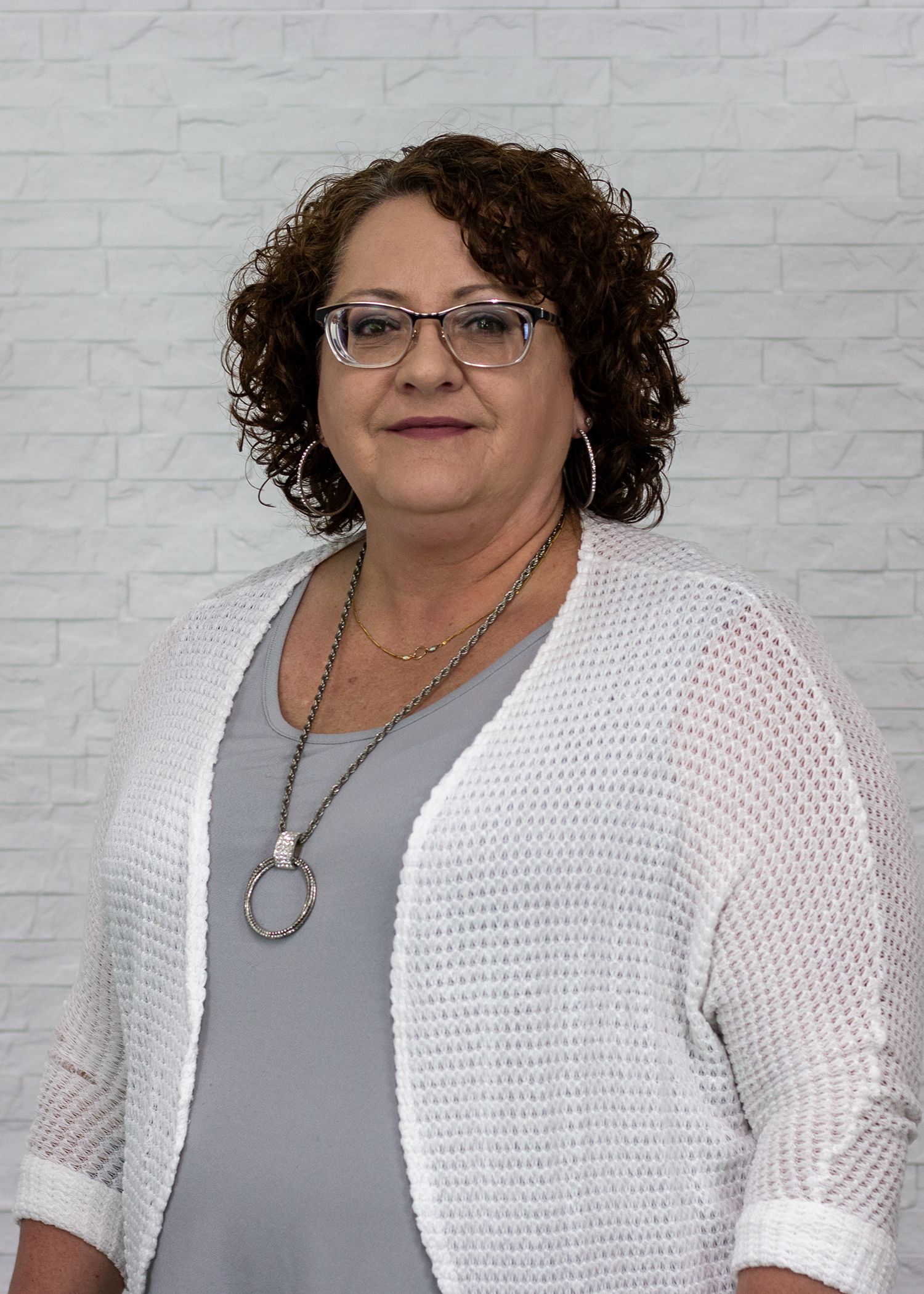Mental Health Services Western Kansas: Professional Psychologists, Therapists, and Counselors For Behavioral Health Care

About Us – What Is Unique About Western Kansas Therapy Associates?
When you call WKTA for the first time, you are going to visit with the owner and practicing therapist, Josh. We are not just going to haphazardly “place you” with a therapist who has an opening. Josh listens to the reasons you are pursuing therapy and considers which therapist you may fit well with based on therapist expertise as well as personality match. Although it is impossible to perfectly predict whether a therapeutic relationship will blossom, we work hard to cultivate this “fit”.

How do I know it is time to “talk to someone” or see a therapist?
This is a great question and one where you are the ultimate expert as to when it is time to seek help. However, it is also important to be honest with yourself and/or listen to trusted people in your life who might express concern.
For some challenges, such as losing a loved one, there might be a clear “marker” when issues began and the changes might be more obvious. In other instances, the challenges may be a lot murkier and something the person has lived with for a long time.
Either way, it might be important to ask yourself the following questions and/or visit with a trusted person in your life about the following questions:
- What are the changes/challenges occurring in my life?
- To what extent are they impacting my daily functioning (responsibilities, sleeping, eating, work, school, play/leisure) ?
- How frequent are these challenges? Is it something I live with daily, weekly, etc?
- How much distress do these challenges bring me? Do they affect my mood? Do they occupy my thoughts too much or do the feelings prevent me from being happier/more content?
- To what extent do these challenges impact the relationships in my life OR do they prevent relationships from being healthy?
- Do the challenges bring myself or others possible harm? Do I experience thoughts of suicide or self-harm? Do I harm others physically or psychologically?
What if I do not “fit” well with my therapist?
We encourage you to be honest with the mental therapist and we will gladly help you find another one. Everyone at WKTA understands the importance of the therapeutic relationship. If you do not fit well with a therapist, then we want you to find someone that you feel better about. This might be another therapist at WKTA or another therapist in your community. The main goal of our mental health services in Western Kansas is for you to engage in therapy that feels right for you and get the psychological care you need. The only consideration we encourage here for anyone is to give it 2-3 sessions before changing. Like all good relationships, therapeutic relationships can sometimes take time to blossom.
Who Needs Behavioral Health Care?
At Western Kansas Therapy Associates, we believe that at some point in everyone’s lives, we all need some kind of help. A common phrase and one that providers at WKTA support is “Mental health IS health”. This simple message conveys that overall health consists of many things and mental health is not lesser than any of these. In addition, mental health is a spectrum of challenges. There are some people who may face adversity in their lives that requires relatively little guidance from a therapist. Alternatively, some people face challenges that have been very difficult for a long time and may require a longstanding relationship with a therapist to work through.
Child Psychologist for Children
Children may need behavioral health care if they are having difficulty managing emotions, interacting with peers, or adjusting to changes in their environment. A child psychologist can help identify psychological challenges and provide caregivers with strategies to help. Children may also be having difficulty managing their emotions at school or coping with social issues. A skilled therapist can help create can assist in exploring the causes of these challenges and ways to help the child, caregivers and system adapt.
Caregivers may find it challenging handling these difficulties on their own. Sometimes caregivers are reluctant to enroll their children in counseling because of the stigma that still exists around mental health. However, therapy can be a positive experience and provide family and children skills to help them cope with the challenges they face.
Individuals
Individuals who struggle with mental health conditions, such as depression and anxiety, may benefit from behavioral health care. Some people experience psychological distress due to major life stressors or loss of a loved one, and might also benefit from behavioral health services. Alternatively, some people may battle mental health challenges for much of their lives including the lasting effects of trauma, long term depression or anxiety, or a variety of other challenges.
Teens
Teenagers may especially need behavioral health care when they are having difficulty navigating the many changes that occur during adolescence. Teen counseling can help young people understand and manage their emotions, build positive relationships, cope with stress, and transition into adulthood. This can translate into improved social functioning, better academic performance and increased self-esteem. It is important to recognize that teens are in a very vulnerable period of life and if they are struggling with mental health challenges, visiting with a trusted therapist can help offset these.
Youth Community Support
The extensive experience of our therapists in providing psycho-social interventions to youth and their support systems has enabled our team to support a range of young people facing social, behavioral, emotional and mental health challenges. We understand that early intervention is vital in helping young people overcome difficulties, so we work with children’s support systems to understand the nuances of your situation.. We also recognize the importance of having a range of options available to ensure the best outcomes for our clients.
Seniors – Adult Community Support
Elders may need behavioral health care if they feel isolated, have difficulty managing chronic conditions, or experience depression and anxiety. Counseling can help seniors develop strategies for maintaining relationships with loved ones, handling stress, and adapting to life changes. Veterans who have experienced trauma also benefit from our specialized behavioral health care. Our veterans mental health services are designed to address the unique challenges faced by those who have served our country. We provide compassionate, evidence-based treatment to help veterans manage their symptoms and achieve greater well-being.
First Responders and Veterans
Therapists at WKTA have extensive training in challenges that first responders and veterans may face. WKTA acknowledges that first responders and veterans possess unique cultures and respects these dynamics. We also acknowledge the stigma that exists with reaching out for help. Our therapists strive to create a non-judgemental environment where first responders and veterans, at their own pace, talk about the unique challenges they face.
Couples: Couples Therapy or Marriage Counselor
Couples may seek behavioral health services to work through communication and relationship issues. This type of counseling can help couples better understand one another, manage conflict more effectively, and develop new skills for building a stronger relationship.
Family: Family Counselor
Families can benefit from behavioral health care when members experience family conflict, communication difficulties, parenting issues, or other mental health challenges. Families might also seek services to address the psychological effects of trauma or major life events like divorce and changes in living situations..
How Our Mental Health Service Works: Comprehensive Psychiatric and Behavioral Health Care
Your First Session At Western Kansas Therapy Associates
After visiting with Josh, your therapist will reach out to you directly and discuss scheduling with you. WKTA uses an electronic medical record named “Simple Practice”, which allows clients to complete their consents for therapy prior to the first meeting with the therapist. Although you are welcome to discuss any of these consents the first session with your therapist, completing paperwork beforehand does promote a more “human feel” to the first meeting with your therapist.

What Will My Therapy Sessions Be Like?
Many people are apprehensive about therapy because they are unsure what therapy sessions are like. When we go to a physical therapist for an injury, we know we will likely be exercising that part of our body to make it stronger and more functional. With a physical therapist, we understand that it might take time to heal the injury and that we might have to take small steps to heal.
Behavioral therapy is not drastically different from this concept, but the concept of physical therapy or injury is easier for most people to grasp. In behavioral therapy, the therapist is not some kind of all-knowing mystic with all the answers to help “fix” whatever issue you are experiencing. Most mental health therapists understand the power of the therapeutic relationship and building this with you. For some clients, it may take a long time to trust a therapist and for others it may not. For some clients, the challenges in their lives are relatively clear, while others have great difficulty identifying their challenges but “know something is wrong”. Most therapists are trained in how to cultivate the therapeutic relationship and collaboratively approach challenges in the client’s life. We are not all-knowing and certainly can’t “fix something” like a car mechanic might be able to with a vehicle. In sum, when you start therapy, you are essentially embarking into a therapeutic/professional relationship with someone highly trained in helping you identify, clarify and address the challenges in your life.
When should I seek therapy for a child in my care?
Please read the response to the question above but think about the questions in the context of a child and these might help you process through this question. In addition, society has a tendency to believe that children are “resilient” or they will “grow out of it”. However, this is not the case in many instances. It can be very difficult to admit that a child you love needs help from a therapist. However, the general rule is that early intervention is better than waiting and backtracking. In addition, you are welcome to visit with Josh when you initially call about whether you are unsure if something is an issue or not. Lastly, once you start working with a therapist these can be ongoing discussions with regards to whether something is still a challenge.
How Does Western Kansas Therapy Associates Work With Insurance Companies?
WKTA also strives to be transparent regarding billing. All the billing is done in-house and is not outsourced. Different providers are credentialed through different insurance companies. Many of them accept most major insurances and we work to get credentialed by smaller companies with many subscribers in our areas (e.g. ProviDRs Care). In most instances, your therapist will be able to communicate each session any existing balance that might be on your account after insurance processes. Lastly, WKTA will email you (if consent is provided) an electronic statement each month with instructions on how to pay easily through the client portal. You can always call the main WKTA number, 785-260-0924 with any questions.
Does WKTA have a waitlist for services?
For therapy services, we can usually get people in to see a therapist within two weeks of you calling. Sometimes, it may be sooner or a bit later, depending on the therapist and your personal circumstances. However, we understand and work hard to get you connected and started as soon as you would like.
For psychological evaluations, we do typically have a substantial waitlist that is usually at least three months. This waitlist exists primarily because there are very few practitioners west of Wichita that conduct these evaluations. It also exists because our evaluations are thorough and comprehensive. However, we do have a dedicated phone line (785-261-0115) for these evaluations and an administrative assistant who manages it closely. You are welcome to call and check-in any time regarding where you are on the list.
Behavioral Health Challenges and Our Treatment Programs
We have the expertise and experience to manage a wide range of mental health conditions. Western Kansas Therapy Associates covers the following and more:

Anxiety
Anxiety is one of the most common mental health issues that WKTA works with. Our experienced therapists provide therapeutic interventions tailored to meet each person’s individual needs. We all experience anxiety to varying extents. However, sometimes anxiety or panic can become very disruptive and professional help can be life changing. We understand that people have different goals in coping with anxiety. Sometimes, processing the root cause of anxiety may be important whereas in other cases anxiety may be due to new life transitions, and addressing this is the goal.

Depression
Depression can cause a range of physical, emotional and behavioral symptoms. Depression is complex and is not a “one size fits all” issue that people face.. WKTA therapists can assist people in better understanding depression and strategies to cope with it over time. We understand the importance of providing support in a safe and non-judgemental environment. No matter how “big or small” these challenges seem to you, it is important you feel heard.

Grief
Everyone encounters grief at some point in their lives. WKTA understands that grieving is not about “getting over it”. Grief is a journey and everyone has a different pace and different way they travel along this journey. Our team offers grief counseling to help clients cope with the loss of a loved one and move through the grieving process in a healthy way. We recognize that grief is unique for each person and provide services tailored to meet people where they are.

Psychological Trauma and PTSD
Over the past several decades, the mental health field has found that psychological trauma contributes to many peoples’ challenges and daily lives. Traumatic events are diverse and can be short-term (e.g. a car accident) or chronic (e.g. childhood trauma or an abusive spouse). WKTA therapists possess extensive training in trauma informed care therapies including TF-CBT, Play Therapy, EMDR and DBT. We acknowledge the complexity of psychological trauma and like any mental health challenge, it is important to move at your pace and meet you where you are.

Play therapy
Children communicate through play and play therapy recognizes this critical truth. Almost no matter how young a child is, they express themselves in their play and a skilled play therapist can help children express themselves in this way. Play therapy, like traditional “talk therapy” can help children understand challenges they face, express emotions and cope with adversity.

Autism Spectrum
In 2023, the CDC reported that 1 in 36 children are on the autism spectrum. This is nearly approaching one child per school classroom. WKTA has found this statistic to be accurate as autism is now considered a spectrum and encompasses a vast range of possible challenges as well as strengths. Several of our providers at WKTA have worked with people with autism and their families for many years.

ADHD
Attention Deficit Hyperactivity Disorder (ADHD) is a diagnosis that affects children and adults alike. In recent history, there is much discussion about ADHD in general public. WKTA therapists are well trained in understanding the nuances of ADHD and are adept in exploring with people or families whether someone they love may be struggling with ADHD or with something else. If someone is having difficulty with ADHD then WTKA can work to understand these challenges and develop strategies to help.

Couples therapy
Taking the step to engage in couples therapy is a big commitment to working on your relationship with your significant other. Our therapists do not take this step lightly. WKTA can help couples better understand each other and grow their relationship. This may include helping each person better identify the needs of their partner as well as communication skills.
Useful Reading
Our Health Services Team
Josh Tanguay
Licensed Clinical Psychotherapist
Tanya Becker
Licensed Master Social Worker
Lyndsey Crisenbery
Licensed Specialist Clinical Social Worker
Cecily Hodges
Licensed Master Social Worker
Brett Bieberle
Licensed Master Level Psychologist
Callie Werth
Licensed Master Social Worker
Sadie Gilbert
Licensed Master Level Social Worker
Andrew Jacobs
Licensed Master Social Worker
Courtney Frack
Licensed Master Level Psychologist
Gidget Mosiman
Licensed Clinical Professional Counselor
Kevin Bawden
Licensed Master Level Social Worker
Jessica Bengtson
Licensed Master Level Social Worker
Brandie Bieker
Licensed Master Level Psychologist
Visit Our Mental Health Practice Locations Today
WKTA has three offices. The main office is in Hays, Kansas in the downtown area. The address is 208 E. 8th Street, STE D, Hays KS 67601. This space has nine offices and a large waiting area as well as two other smaller waiting areas.
The second office is in the downtown area of Plainville, Kansas, 25 miles north of Hays. This large single office is owned by the Rooks County Health Center at 308 W. Mill Street, Plainville KS, 67663. It has the advantage of being very private as we are the only ones in the building.
The third office is in the downtown area of Phillipsburg, Kansas.
This office is in the Fischer building at 205 F Street STE 20, Phillipsburg, Kansas 67661.The building has numerous other businesses in it but we are fortunate to have a first floor office offset from most of the others.
What are the differences between a psychotherapist, psychologist, psychiatrist, counselor, social worker or therapist?
People often wonder about how these terms are different. The professional that is the most unique from the list above is “psychiatrist”. A psychiatrist is someone can prescribe medications and in most cases went through traditional medical school and holds an “M.D.”, like your primary care physician. However, their speciality is psychiatric medication.
The other names in the question all do the same things for the most part. Typically, whether someone is a psychologist or a counselor, they have learned or can learn many of the same therapy theories and use them. Many of these professionals can work in the same environments such as an outpatient therapy practice, hospital, mental health organization or a school. There are some differences in education. Most helping professionals go to graduate school for a minimum of two years after a bachelor’s degree. Some receive their PhD and acquire the title of “Dr.”. There are some differences in how each professional thinks about individual or community challenges but the overlap in the field is much greater than the differences.
When should I seek therapy for a child in my care?
Please read the response to the question above but think about the questions in the context of a child and these might help you process through this question. In addition, society has a tendency to believe that children are “resilient” or they will “grow out of it”. However, this is not the case in many instances. It can be very difficult to admit that a child you love needs help from a therapist. However, the general rule is that early intervention is better than waiting and backtracking. In addition, you are welcome to visit with Josh when you initially call about whether you are unsure if something is an issue or not. Lastly, once you start working with a therapist these can be ongoing discussions with regards to whether something is still a challenge.
Frequently Asked Questions
What is a psychological evaluation?
WKTA is fortunate to have a practitioner (Brett Bieberle, LMLP, EdS) who provides thorough psychological evaluations for teenagers/children. A psychological evaluation is different from therapy in that it examines the child’s entire life with the goal of clarifying whether there is a diagnostic concern. For instance, a child may be acting out at home and school but caregivers, teachers and school counselor are unsure why. Alternatively, the child may have a rich trauma history with different diagnostic concerns that need to be clarified.
How long do psychological evaluations last?
The length of psychological evaluations vary depending on several factors. One factor is the complexity of the child and/or the child’s situation. The more complex the situation, generally the longer it will take to work through the evaluation process. Another factor is both the availability of the child/caregivers as well as the practitioner.
What does the evaluation actually consist of?
Most evaluations include a comprehensive collection of the child’s history and family/caregiver history. The practitioner will then administer different tests/questionnaires to the child (e.g. IQ tests, achievement tests, behavioral questionnaires, personality inventories etc.) The caregiver may also complete questionnaires. The provider will also visit with the child and explore the child’s perception of their world, their strengths, challenges, etc. Lastly, the provider will type a detailed report of the evaluation findings and “debrief” with the caregiver. Here, the caregiver can ask the provider more questions about the future as well as begin to facilitate next steps to acquire help if indicated.
Is it okay to use the term “mental illness”?
For many decades, people involved in the mental health field have written about what is “politically correct” terminology when discussing mental health. There are many varying opinions. The Mental Health First Aid model, a respected model that trains the general public in the basics of mental health currently uses the terms “mental health challenge” or “mental health issue”.
This terminology respects the spectrum of mental health challenges that ranges from overwhelming stress someone might experience to a very disruptive mental health “disorder” in someone’s life. Others propose that the term mental illness when discussing mental health diagnoses such as Major Depressive Disorder or Obsessive Compulsion Disorder is appropriate because it acknowledges the struggle that person may be experiencing. “Mental Illness” also aligns with the medical model in that someone is ill in some fashion and the goal is to help them work through that illness.
One important component to terminology in today’s world is to use “person first language” in almost all circumstances. This means the person goes before the diagnosis. So, it is “someone with bipolar disorder” or “someone who has depression”. We do not use terms like “schizophrenic” or “she is bipolar”. Talking like this is important because it helps us consciously and subconsciously understand that this is a person who has a challenge and they are not defined solely by their diagnosis. It can help people think differently and more empathetically.
Can mental illness be cured?
This is very complex question that is often asked. “Cured” is a loaded term that most mental health professionals do not use. A better word for this question would be “managed”. Many mental health professionals would likely agree that whatever challenges are present in someone’s life, the goal would be to help someone identify, understand, accept and manage those challenges in order to live the life they would like to live.
From a clinical perspective, some diagnoses are likely to be with people for the remainder of their lives if diagnosed properly. Some examples of these are diagnoses like autism spectrum disorder or bipolar disorder. I would like to emphasize here the importance of proper diagnosis as sometimes professionals are too quick to “label” people with issues that may be inaccurate. Other mental health challenges such as PTSD or a clinical phobia may not be with someone their entire life. There are many factors that contribute to all of this and thus why the term “managed” is a much better fit than “cured”.
What can mental health services offer?
Mental health services offer support, guidance, and treatments to help people manage mental illness. Our mental health professionals provide individualized treatment plans and strategies for coping with mental health issues. We help to address underlying causes of mental illness and develop strategies that promote long-term healing and wellness.
What are the signs of mental illness?
Answering these questions honestly would help one determine when it is time to see a therapist.
- What are the changes/challenges occurring in my life?
- To what extent are they impacting my daily functioning (responsibilities, sleeping, eating, work, school, play/leisure) ?
- How frequent are these challenges? Is it something I live with daily, weekly, etc?
- How much distress do these challenges bring me? Do they affect my mood? Do they occupy my thoughts too much or do the feelings prevent me from being happier/more content?
- To what extent do these challenges impact the relationships in my life OR do they prevent relationships from being healthy?
- Do the challenges bring myself or others possible harm? Do I experience thoughts of suicide or self-harm? Do I harm others physically or psychologically?
What are common mental health challenges or disorders?
A mental health challenge can be anything that someone is having difficulty with. As described elsewhere, someone can become more of a “disorder” when it significantly impacts someone’s functioning on a relatively frequent basis as well as causes them distress. Common mental health diagnoses include Major Depressive Disorder, Generalized Anxiety Disorder, ADHD, and Autism Spectrum Disorder. Less common diagnoses include Bipolar Disorder, Schizophrenia, PTSD or personality disorders.
Is it important to receive a diagnosis? Is it a “label”?
This is another question that mental health professionals and philosophers actually have argued about for years. There is not an easy answer. One the one hand, in many cases having an official diagnosis or “label” is not important. In fact, many people may not meet criteria for a “diagnosis” but are just struggling with life adversity of some kind. On the other hand, someone receiving an accurate diagnosis can help them understand their challenges better as well as set them on path to getting proper help for those challenges. For instance, if someone has autism spectrum disorder, receiving this diagnosis can validate the challenges they experience as well as their family. It can also help them access resources that are not available without a proper diagnosis.












